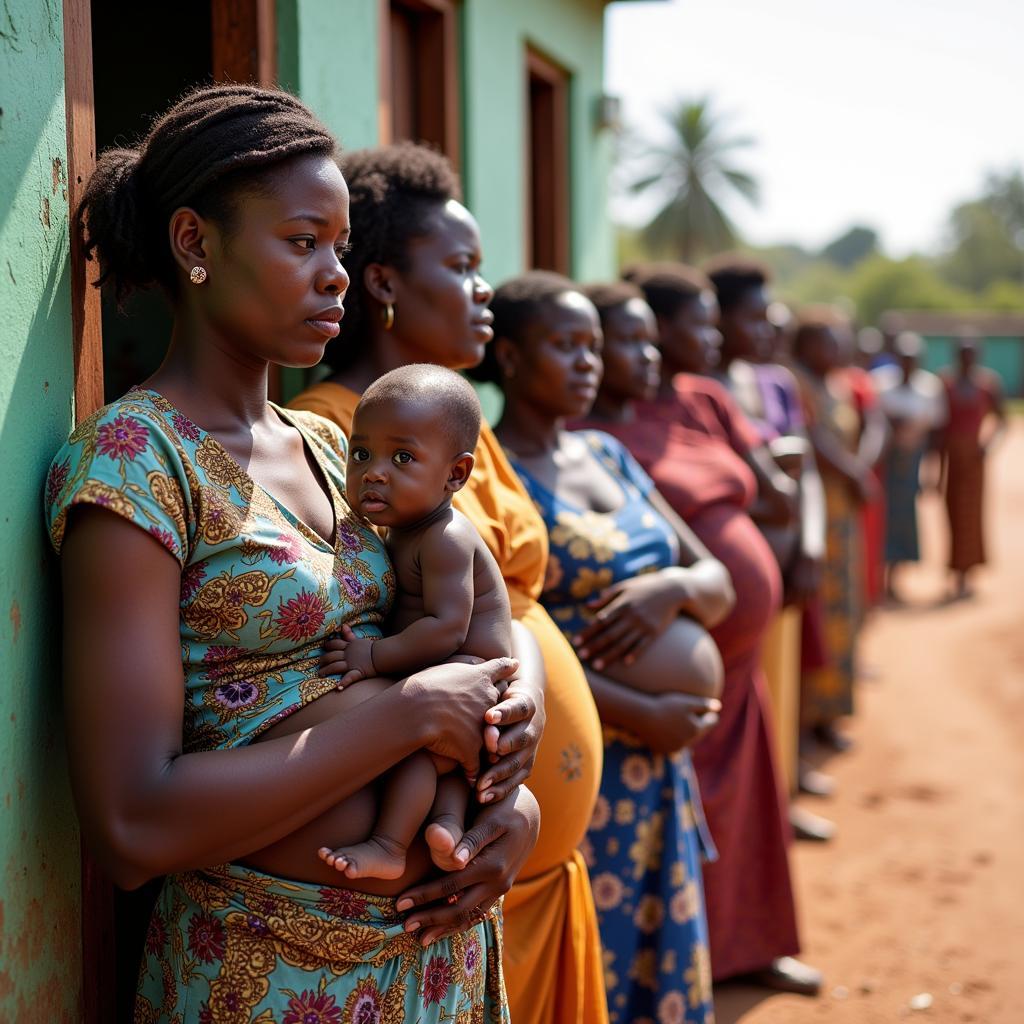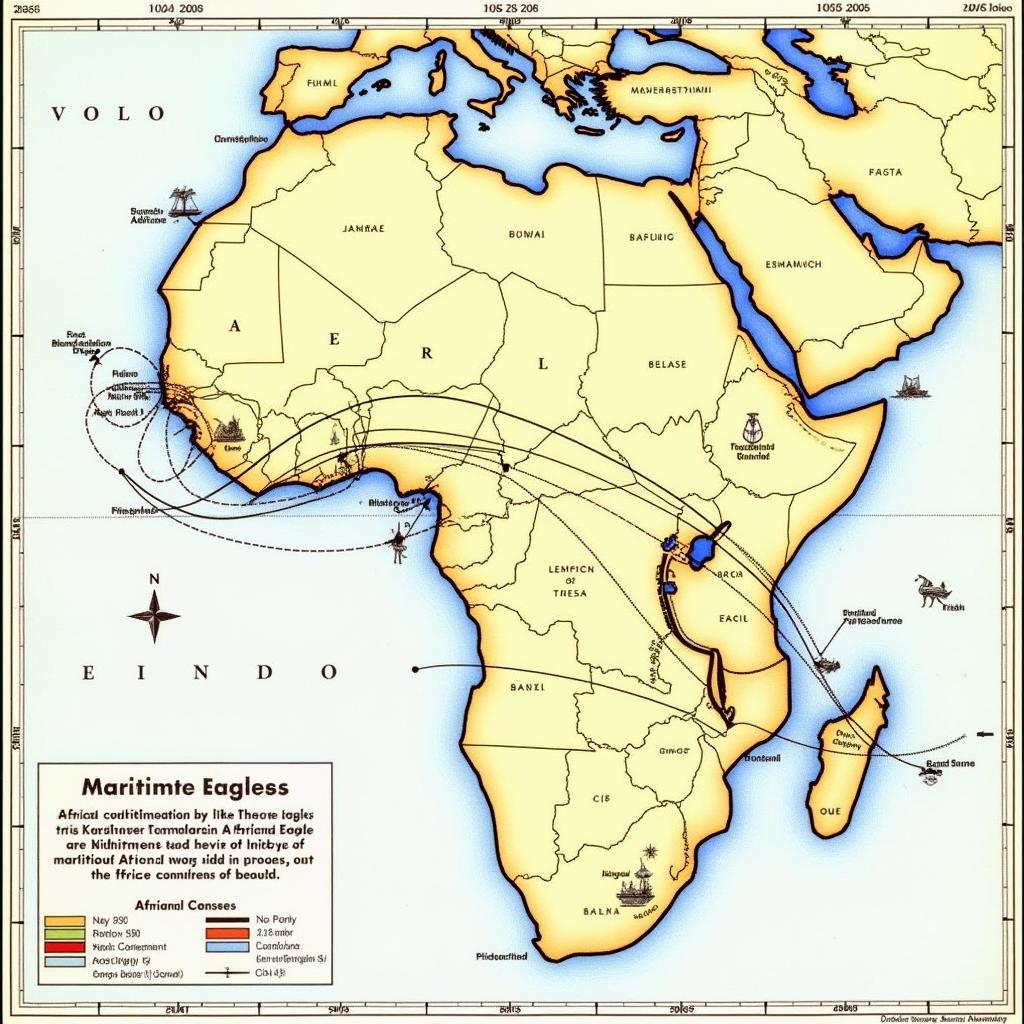African Countries Ranked by Population
Africa, a continent of vibrant cultures and diverse landscapes, is also home to a rapidly growing population. Understanding how African countries are ranked by population offers valuable insights into demographic trends, economic development, and social dynamics. This knowledge is crucial for policymakers, researchers, and anyone interested in the future of this dynamic continent.
The population distribution across Africa isn’t uniform. Some nations boast populations exceeding 100 million, while others remain relatively smaller. Factors such as birth rates, mortality rates, and migration patterns contribute significantly to these variations. Knowing which African countries have the largest and smallest populations helps to understand the diverse challenges and opportunities present within the continent. It also helps in appreciating the sheer scale of human life and its impact on resources and infrastructure across the region. More than just numbers, understanding population rankings reveals stories of societal growth, change, and the ongoing pursuit of sustainable development. This understanding is crucial for effective planning and resource allocation.
Factors Influencing Population Rankings
Several factors influence the population size and ranking of African countries. Birth rates, often higher in less developed nations, play a crucial role. Similarly, access to healthcare and subsequent mortality rates greatly impact population growth. Migration within and between countries also influences population distribution. Economic opportunities and political stability can either attract or displace large numbers of people, reshaping the demographic landscape of individual nations. Understanding these intricacies is key to interpreting population data accurately. For example, high population density in certain areas can strain resources and infrastructure, highlighting the need for sustainable development strategies. You can read more about African countries and their development index for further insights.
african countries and their development index
Understanding the factors impacting population dynamics also provides context for other economic indicators. For a deeper dive into relative wealth, you can examine how African countries are ranked by per capita.
The Top 10 Most Populous African Countries
Which country in Africa has the largest population?
Nigeria currently holds the title of Africa’s most populous nation.
Nigeria is projected to remain the most populous country in Africa, with its population expected to continue growing rapidly. Following closely behind are Ethiopia and Egypt, also experiencing significant population increases. These three nations contribute substantially to the overall population growth of the continent.
- Nigeria
- Ethiopia
- Egypt
- Democratic Republic of Congo
- Tanzania
- South Africa
- Kenya
- Uganda
- Algeria
- Sudan
These rankings provide a snapshot of current demographic trends. However, factors like changing birth rates and migration can shift these rankings over time. Understanding these dynamic forces is essential for predicting future population patterns and their potential impact on the continent.
The Least Populous African Countries
While some African countries boast large populations, others remain relatively small. These smaller nations often face unique challenges and opportunities related to their demographics. Understanding their population dynamics is crucial for tailored development strategies.
- Seychelles
- São Tomé and Príncipe
- Comoros
- Cape Verde
- Gambia
Comparing population size with economic performance can reveal further insights. Learn more about African countries by population and area to understand the interplay between demographics and geography.
What are the population projections for African countries?
Population projections suggest continued growth across Africa, with some regions experiencing more rapid increases than others. This growth presents both opportunities and challenges, highlighting the need for sustainable development planning. For a historical perspective, it’s also insightful to look at African countries by population in 2017.
african countries by population and area
“Understanding population dynamics is essential for informed decision-making across various sectors, from healthcare and education to infrastructure and resource management,” says Dr. Amina Omar, a leading demographer specializing in African population studies.
african countries by population 2017
The Interplay Between Population and GDP
Population size can influence a country’s economic output, but it’s not the sole determinant. Exploring the relationship between population and GDP provides a more nuanced understanding of economic development. It’s interesting to compare population rankings with GDP performance. Discover more about the African countries with highest GDP.
african countries with highest gdp
“A large population can be both an asset and a liability. It can provide a large workforce but also strain resources if not managed effectively,” adds Professor Kwame Asante, an economist specializing in African development.
Understanding how African countries are ranked by population is vital for comprehending the continent’s complex dynamics. These rankings, alongside factors like birth rates, mortality rates, and migration, paint a more complete picture of Africa’s demographic landscape and its implications for the future.
FAQ
- Which is the most populous country in Africa? Nigeria.
- What factors influence population rankings in Africa? Birth rates, mortality rates, and migration patterns.
- Is Africa’s population projected to grow? Yes, significant growth is projected.
- Where can I find more information on African demographics? Resources like the World Bank and United Nations Population Fund offer detailed data.
- How does population size impact a country’s economy? It can impact the workforce and resource availability, influencing economic output.
- What are some of the least populous countries in Africa? Seychelles, São Tomé and Príncipe, Comoros, Cape Verde, and Gambia.
- Why is understanding population ranking important? It helps understand demographic trends, economic development, and social dynamics, which is crucial for policy-making and resource allocation.
You may also be interested in articles about African culture, African music, and African cuisine.
For further assistance, please contact us at:
Phone Number: +255768904061
Email: kaka.mag@gmail.com
Address: Mbarali DC Mawindi, Kangaga, Tanzania.
Our customer service team is available 24/7.


